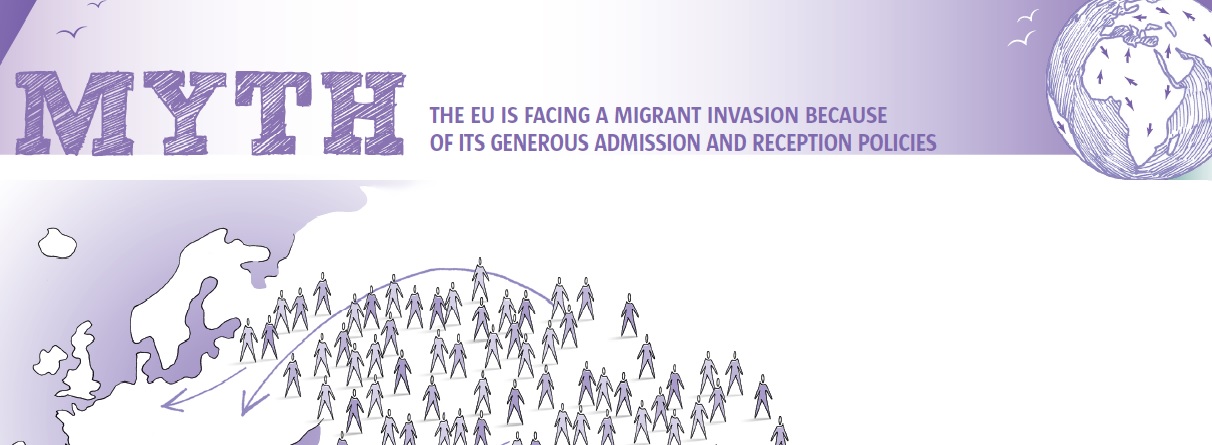
With the increase in the number of refugees and migrants trying to enter Europe in 2015, there has been a concurrent increase in suspicion, fears and preconceptions among the citizens and governments of destination countries.
Myth: More development leads to less international migration
VS
Reality: Poverty reduction is a necessary but not sufficient condition to fight against migration out of necessity
244 million international migrants and a greater number of diaspora members currently contribute to the economic and social development of their origin and destination countries. Despite this fact, widespread, erroneous and harmful clichés about migrants still run amok among decision makers, media outlets, civil society organisations and the broad public, sometimes so rooted that they end up influencing some misguided policies on the matter.
Myth: [...] "France cannot host all the misery of Europe and the world". Manuel Valls, French Prime Minister and Minister of Home affairs at the time September 2012
VS
Reality: In 2013, migrants from the Global South living in the Global North represented 81.9 million people, accounting for only one third of international migration and 1% of the world population.
In the face of these assumptions, the International Catholic Migration Commission (ICMC) Europe and the Forum des Organisations de Solidarité Internationale issues des Migrations (FORIM) developed, in collaboration with CONCORD, a new awareness-raising tool to debunk 10 common and persistent myths regarding migration, that often lead to a misplaced negativity towards migrants and diaspora.
Indeed, by confronting false or misleading statements with strong data, facts and migrant testimonies this publication aims to deconstruct received ideas, by tackling common misconceptions on migration in relation to poverty, development aid and the job market, among others.
Myth: Migration benefits only the individuals who migrate and not their countries or communities of origin
VS
Reality: The benefits of migration reflect through remittances, knowledge and skills transfer, but also through transnational networks, diaspora associations and development partners.
Debunking these misconceptions can lead to better informed actors and, therefore, better policies to improve human rights for all migrants, but also improve society as a whole, decrease xenophobia and could operate the long-needed shift from fact-free controversy to a healthy, well-informed, open public debate.
Download and share the tool below!
*United Nations, International Migration Report 2015, Highlights, 2016 (Advance copy)